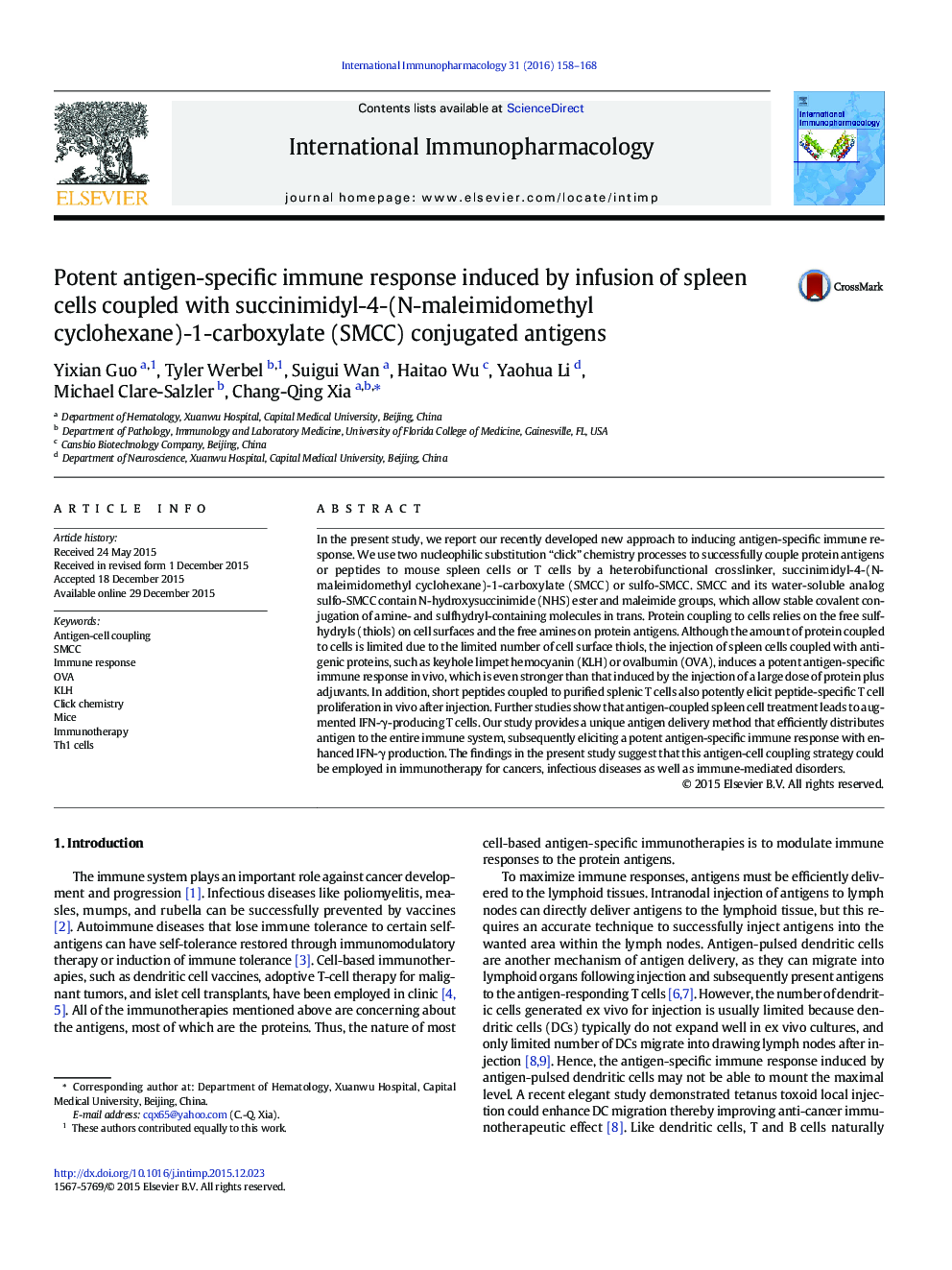| Article ID | Journal | Published Year | Pages | File Type |
|---|---|---|---|---|
| 5831896 | International Immunopharmacology | 2016 | 11 Pages |
â¢SMCC or Sulfo-SMCC is efficiently conjugated with antigenic proteins or peptides.â¢SMCC or Sulfo-SMCC heterobifunctional crosslinker efficiently couples protein antigens to mouse spleen cells.â¢Infusion of antigen-coupled spleen cells mounts potent antigen-specific immune responses with enhanced Th1 and IFN-γ-producing CD8 + T cells.
In the present study, we report our recently developed new approach to inducing antigen-specific immune response. We use two nucleophilic substitution “click” chemistry processes to successfully couple protein antigens or peptides to mouse spleen cells or T cells by a heterobifunctional crosslinker, succinimidyl-4-(N-maleimidomethyl cyclohexane)-1-carboxylate (SMCC) or sulfo-SMCC. SMCC and its water-soluble analog sulfo-SMCC contain N-hydroxysuccinimide (NHS) ester and maleimide groups, which allow stable covalent conjugation of amine- and sulfhydryl-containing molecules in trans. Protein coupling to cells relies on the free sulfhydryls (thiols) on cell surfaces and the free amines on protein antigens. Although the amount of protein coupled to cells is limited due to the limited number of cell surface thiols, the injection of spleen cells coupled with antigenic proteins, such as keyhole limpet hemocyanin (KLH) or ovalbumin (OVA), induces a potent antigen-specific immune response in vivo, which is even stronger than that induced by the injection of a large dose of protein plus adjuvants. In addition, short peptides coupled to purified splenic T cells also potently elicit peptide-specific T cell proliferation in vivo after injection. Further studies show that antigen-coupled spleen cell treatment leads to augmented IFN-γ-producing T cells. Our study provides a unique antigen delivery method that efficiently distributes antigen to the entire immune system, subsequently eliciting a potent antigen-specific immune response with enhanced IFN-γ production. The findings in the present study suggest that this antigen-cell coupling strategy could be employed in immunotherapy for cancers, infectious diseases as well as immune-mediated disorders.
